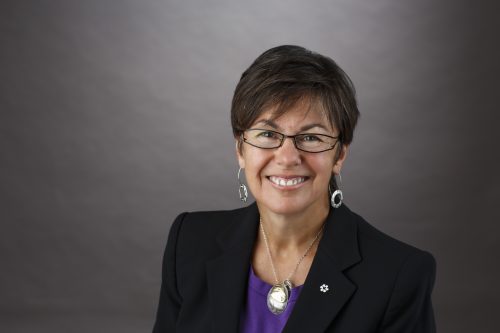
What does the future of justice look like? Many Canadians are asking this question following acquittals last month in the murders of Colten Boushie and Tina Fontaine.
Senator Kim Pate, who has worked on behalf of some of the most marginalized, victimized and institutionalized Canadians, will discuss “What Does the Future of Justice Look Like?” at the University of Guelph March 12 during the 2018 Truscott Lecture in Justice.
The lecture will take place 6:30-7:30 p.m. in Rozanski 102.
The talk is free and open to the public.
Pate has worked with imprisoned youth, men and women in Canada’s legal and penal system for 35 years.
A 1984 graduate of Dalhousie Law School, she was executive director of the Canadian Association of Elizabeth Fry Societies for more than 20 years. She has developed and taught courses on prison law, human rights and social justice, and defending battered women on trial at law schools across Canada.
Pate held the Sallow Chair in Human Rights at the University of Saskatchewan College of Law in 2014 and 2015.
In 2016, she was appointed to the Senate.
Widely credited as the driving force behind the Inquiry Into Certain Events at the Prison for Women in Kingston, Pate supported women as they spoke about their experiences, and was a critical resource and witness in the inquiry.
Pate is a member of the Order of Canada and has five honorary doctorates.
As part of the Truscott Initiative launched at U of G in 2009, the lecture series was created to improve understanding of the nation’s complex criminal justice system, and to highlight how criminal justice intersects with other policy areas and broader conceptions of justice.
The initiative was named for Guelph resident Steven Truscott and his family. Truscott is known across Canada for his decades-long battle to prove his innocence after the 1959 murder of his schoolmate Lynne Harper.
Wrongfully convicted of the crime at age 14, he spent years in prison before his release in 1969. He was acquitted by the Ontario Court of Appeal in 2007.